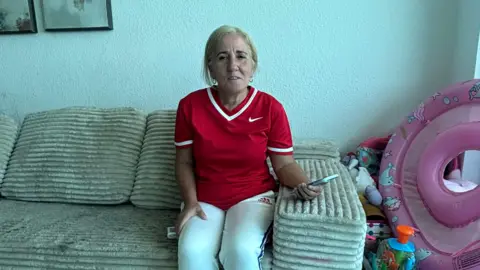Inside Alligator Alcatraz: The Final Days of a Controversial Immigration Facility
The Alligator Alcatraz immigration detention center in Florida, a symbol of intense national debate over U.S. immigration policy, is set to close just two months after it opened, following a court's decision. Families of detainees have shared troubling accounts of life within its walls, revealing serious concerns about medical care and legal access.
When Yaneisy Fernandez's son was detained, she was immediately struck with fear and uncertainty. Her son, Michael, referred to the facility as the place of the crocodiles. Built hastily in June within the Florida Everglades, the temporary detention center housed thousands, although it never reached full capacity.
Quickly dubbed Alligator Alcatraz, the facility drew both visitors and protesters, becoming a flashpoint for discussions around Trump-era immigration tactics. Reports of neglect surfaced, including the harrowing experience of Yaneisy’s son, who suffered from severe medical issues but was allegedly denied adequate treatment.
As the Department of Homeland Security (DHS) begins the shutdown process, affecting roughly half of the detainees, distressing stories continue to emerge. Detainees report disappearing into a bureaucratic black hole, leaving families grappling with uncertainty and fear.
The Facility of the Crocodiles
Despite promises from officials regarding conditions at Alligator Alcatraz, the accounts of detainees and families paint a dismal picture. Michael was left bleeding and in pain after a severe medical incident, leading to allegations of negligence within the confines of the detention center.
As the facility prepares for closure, those affected look toward the future, anxious about what’s next. While the DHS maintains that proper medical care is available, families insist on their lived experiences, asserting that the system is failing them. Their stories suggest that the issues at Alligator Alcatraz may reflect wider systemic problems within the U.S. immigration detention framework.




















